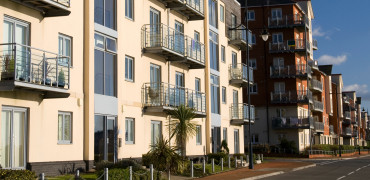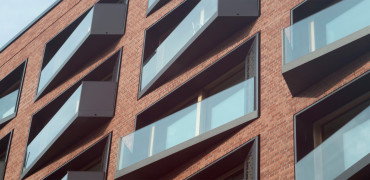The sixth mass extinction is well underway and, as David Attenborough said, this time we are the meteor...
...yet we bicker about human trivialities such as race, health, wealth and politics.
Our war with nature isn’t just putting the ecosystems that we rely on at risk.
Human activities such as live animal trade and the habitat destruction are scientifically proven to drive the emergence of diseases.
Disease ecologists believe that if we continue on this pathway, this year’s pandemic will not be a one-off event.
With a million species at risk of extinction, the loss of biodiversity has consequences for us all, threatening food and water security, undermining our ability to control our climate and even putting us at greater risk of pandemic diseases.
So what can we do? And where can we save carbon?
The greatest frustration is that we currently have the technology needed for our salvation
What can we do?
Heat is used for domestic, commercial and industrial purposes and accounts for around a third of UK greenhouse gas emissions. Around 50% of heat emissions come from the domestic sector. In the UK domestic and commercial setting, 98% of greenhouse gas emissions come from space and water heating.
Whilst it will require action across all levels of human society to cease and reverse the destruction we have wreaked on the very environment that we rely on for life, it’s clear to see that one very effective way to tackle climate change head-on would to change our relationship with heat and warm our homes in a smarter way.
Green Homes Grant
If you’re a homeowner or residential landlord you can apply for a Green Homes Grant voucher towards the cost of installing energy efficient improvements to your home.
Improvements could include insulating your home to reduce your energy use or installing low-carbon heating, such as heat pumps, to lower the amount of carbon dioxide your home produces.
Vouchers will cover two-thirds of the cost of eligible improvements, up to a maximum government contribution of £5,000.
If you, or someone in your household, receive certain benefits you may be eligible for a voucher covering 100% of the cost of the improvements. The maximum value of the voucher is £10,000.
Did you know:
- 1 million plant and animals species face extinction within a matter of decades due to human activity
- 40% of Earth's amphibians, 25% of its mammals, and 33% of its coral reefs are threatened with extinction
- 99.9% of critically endangered species and 67% of endangered species will be lost within the next 100 years
- 40% of the world's insects (including pollinators) are in decline, decreasing by 2.5% per year. At this rate, the Earth will not have any insects at all by 2119
- In the past 50 years, more than 500 amphibian species have declined worldwide — and 90 have gone extinct
- The average rate of extinction over the last century is up to 100 times higher than normal
- By 2070, 1,700 species will lose 30% to 50% of their present habitat ranges thanks to human land use
- Every year, more than 18 million acres of forest disappear, where some 80% of the world's species can be found
- In the next 50 years humans will drive so many mammal species to extinction that Earth's evolutionary diversity won't recover for 3 million years
- 50% of the world's ocean reefs have died over the past 30 years
- 75% of all land on Earth and 66% of oceans have been significantly altered by people. 85% of global wetland is been lost. 79 million acres of primary and recovering forest disappeared between 2010 and 2015 alone
ONE IN SIX SPECIES IS ON TRACK TO GO EXTINCT.
In summary
The greatest frustration in all this is that we currently have the technology needed for our salvation.
More power from the sun hits earth in a single hour than humanity uses in an entire year. The sun provides 430 quintillion joules of energy per hour; in comparison, mankind only consumes 500 million terajoules per year. It has been posited by solar experts that if we covered just 1% of the sahara desert with solar panels, that we could power the planet.
Heat pumps don’t directly use combustion to generate heat (heat pumps do not burn anything), there are no carbon emissions other than those created at the point of the electricity’s production and only a small amount of electricity is needed to run the compressor. This makes a heat pump an extremely eco-friendly space heating / cooling technology.
We have the technology. But as David Attenborough put it: “real success can only come if there is a change in our societies and in our economics and in our politics."
Joe Bradbury Digital Editor of HA magazine



